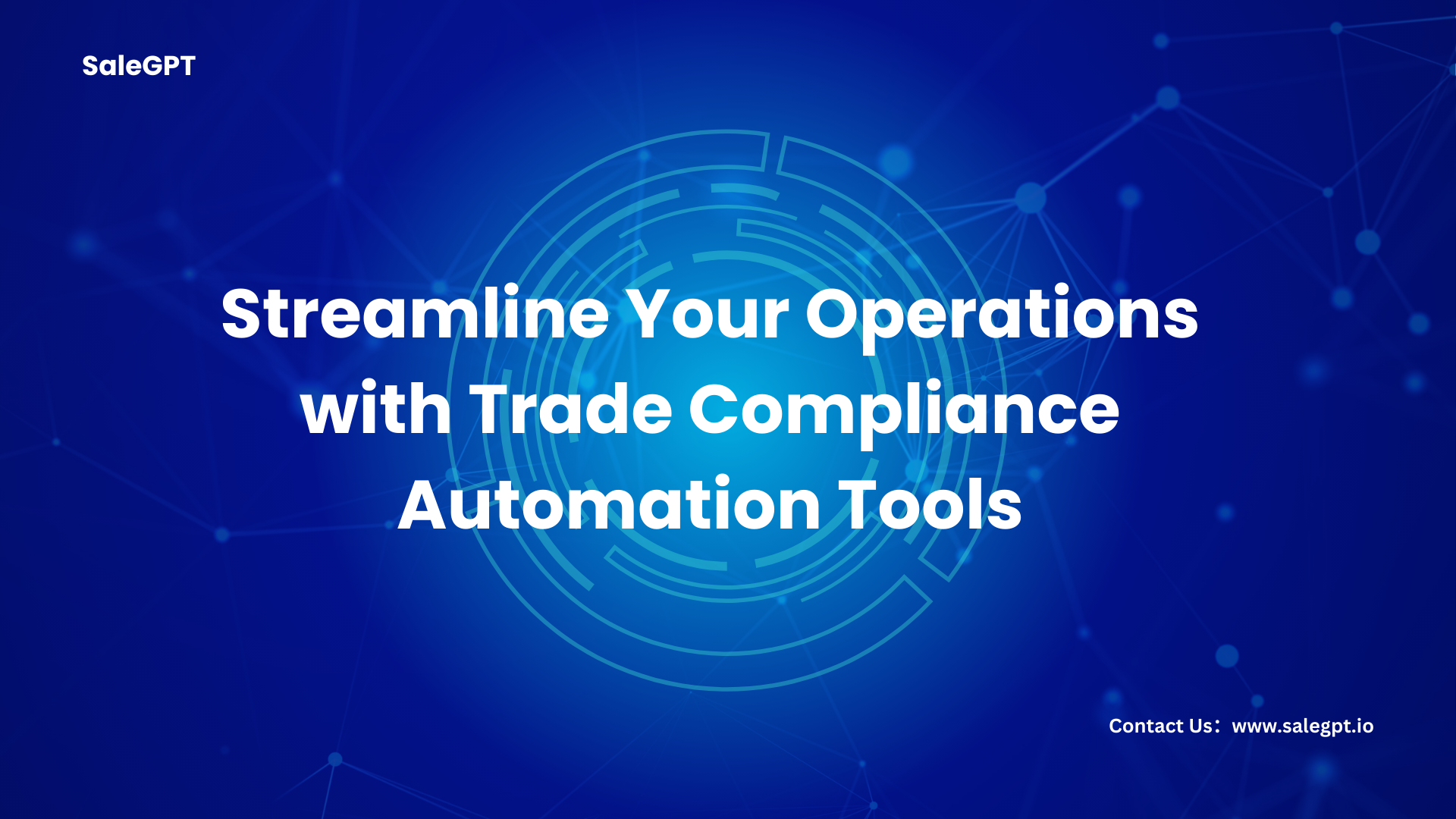
In the complex world of international trade, staying compliant with various regulations can be a daunting task. Global businesses face the challenge of navigating different countries' trade laws, tariffs, and documentation requirements. Trade Compliance Automation Tools are emerging as powerful solutions to help businesses automate and streamline these processes. In this article, we'll dive into how these tools can transform trade compliance and why every global business should adopt them.
What AreTrade Compliance Automation Tools?
Trade compliance automation tools are software solutions designed to help businesses comply with international trade regulations. These tools automate the processes involved in ensuring that shipments meet the legal requirements of the countries involved, helping businesses avoid costly fines, delays, and reputational damage.
These tools can help manage a variety of compliance activities, including:
- Customs documentation and filing
- Trade agreements and tariff management
- Export control compliance
- Sanctions and embargo screening
- Risk assessments and audits
By automating these tasks, businesses can significantly reduce manual errors and ensure that they are always up-to-date with changing regulations.
HowTrade Compliance Automation ToolsDrive Efficiency
(a)Reduced Manual Work
One of the biggest advantages of using automation tools is the reduction of manual work. Trade compliance typically involves extensive paperwork, multiple parties, and complex legal requirements. Automation tools can handle repetitive tasks, such as document generation and submission, so your team can focus on more strategic activities.
For instance, instead of manually tracking changes in tariff schedules or updating product classifications, automation tools automatically pull the latest data and adjust compliance actions accordingly. This frees up resources and ensures that compliance is always accurate and timely.
(b)Real-Time Updates on Regulatory Changes
Global trade regulations are constantly changing. This makes it incredibly challenging for businesses to keep track of every update, especially when operating across multiple regions.Automation toolsprovide real-time updates on regulatory changes, ensuring that your compliance efforts are always aligned with the latest laws. This reduces the risk of missing important deadlines or failing to comply with new regulations.
By staying ahead of the curve, businesses can avoid costly fines or shipment delays due to non-compliance.
(c)Improved Accuracy and Reduced Risk
Manual processes are prone to human error, which can be costly in the world of global trade compliance. Small mistakes in documentation, such as incorrect tariff codes or missing documents, can lead to significant penalties or delays. Trade compliance automation tools eliminate the risk of these errors by ensuring that all data is correctly entered, validated, and submitted on time.
By automating compliance processes, businesses can significantly reduce the risk of non-compliance, legal issues, and unnecessary costs.
The Strategic Benefits ofAutomating Trade Compliance
(a)Cost Savings
While the initial investment in trade compliance automation tools may seem significant, the long-term savings are substantial. Automation reduces the need for a large compliance team, lowers the risk of fines and penalties, and prevents delays that can lead to lost business opportunities. Over time, businesses that implement automation see a considerable reduction in compliance-related costs.
In addition, the efficiency gains from automation can lead to faster processing times, which can improve cash flow and allow businesses to allocate resources to more critical areas.
(b)Enhanced Global Trade Visibility
Automation tools provide businesses with enhanced visibility into their entire trade compliance process. They allow companies to track the status of shipments, monitor potential risks, and generate reports on compliance activities. This visibility enables businesses to take corrective actions proactively and ensures that nothing falls through the cracks.
A comprehensive view of compliance data also allows businesses to improve decision-making and optimize their supply chain, reducing inefficiencies.
How to Choose theRight Trade Compliance Automation Tool
When selecting a trade compliance automation tool, it’s important to consider your company’s specific needs. Some factors to evaluate include:
- Ease of Integration:The tool should seamlessly integrate with your existing systems, including your Enterprise Resource Planning (ERP) system, supply chain management tools, and other software.
- Global Coverage:Ensure that the tool supports compliance requirements in all regions where you do business.
- Scalability:As your business grows, your compliance needs will evolve. Choose a tool that can scale with your business.
- Customization:Look for a solution that can be customized to fit your unique compliance requirements.
Conclusion:
Trade compliance automation tools are an essential asset for businesses engaged in global trade. By automating manual processes, improving accuracy, and staying ahead of regulatory changes, these tools reduce risk and drive efficiency. Adoptingtrade compliance automationnot only ensures smoother operations but also provides businesses with a competitive edge in a fast-changing global marketplace. With the right tool, you can focus on growing your business while leaving the complexities of compliance to technology.


